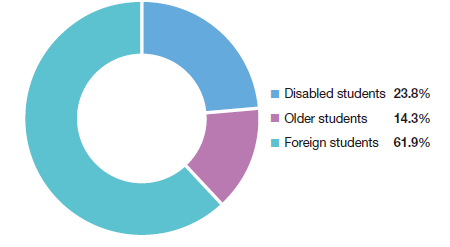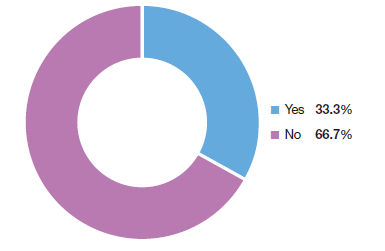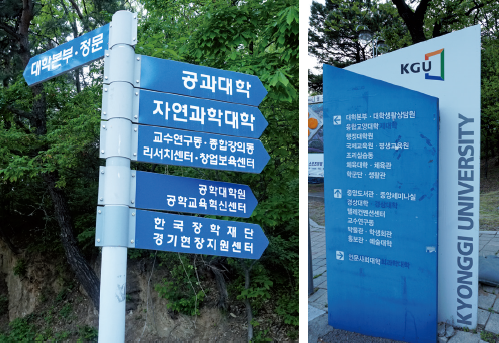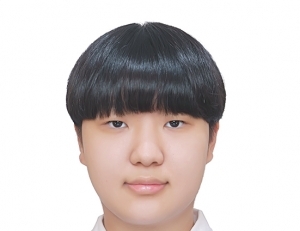There are many marginal groups in our society, but there is a lack of institutions and facilities to help them. Nevertheless, society still introduces things that further alienate marginal groups such as Kiosk for the sake of convenience and saving time. Moreover, providing services through mobile devices and the Internet is also an example of a lack of consideration for these groups because there are lots of elderly people who are not familiar with electronic devices. Because of the importance of this issues, the Pharos will try to find out whether our school, like society in general, focuses on the majority and does not care enough for those who belong to marginal groups.
There are definitely marginal groups in our school as well. Such groups include foreign students, older classmates, those who are physically ill, and even a small number of individuals who should be respected for their propensities. However, Kyonggi University lacks facilities and programs for them. For example, in the case of visually impaired students, it is difficult to use the unmanned machines in school cafeterias, as the cafeterias have no means to order except Kiosk. Thus, the Pharos decided to listen to the opinions of our school students about whether our school cares about the underprivileged or just leaves them unattended.
First of all, when asked what marginal groups they thought existed at Kyonggi University, 61.9 percent mentioned foreign students, followed by the disabled and the older students. Also, 66 percent of the students responded that school does not have programs and facilities for various marginal groups. On the other hand, the remaining 33 percent responded that the programs for marginal groups were running well. The programs that the Human Resources Development offers for students returning to school and the Korean language helper program run for foreign students at the International Affairs Team are two examples. In addition, when asked what efforts should be made by Kyonggi University for marginal groups, most said the size of the group should be examined and enough programs and welfare facilities should be provided for them. There were also opinions that suggested that students should change their attitudes and perceptions to prevent ostracizing marginal groups, and that a program which promotes the integration of marginal groups into university life is needed. In other words, more than half of the students said that they felt that the school did not have any programs or facilities that cared about marginal groups and that the school and students should try to assist them all.
What kind of marginal groups do you think exist in Kyonggi University?
Do you think there are programs and facilities that the school is offering for various marginal groups?
Foreign students are representative of the marginal groups in Kyonggi University. Foreign students have entered our school to learn more than in their own countries, but the reality is that they are only taking courses for foreign students. The reason is that Korean students tend to be reluctant to take the same classes as foreign students. One foreign student even said that while taking the same lecture as Korean students, he had an experience of no team accepting him when he was setting up a team for a team project. Then, what measures should be taken at the school and student level to help them? We asked a foreign student to hear her opinion about this matter.
Q. Please introduce yourself.
A. Hello, I am Shin Hyang-Nam, of the class of 2017 in the Department of Trade. I am from China.
Q. Have you ever felt that you were being left out when you took the same lecture as Korean students?
A. Yes. I don't have a problem when I just listen to a lecture, but I feel that a lot when I do team activities. When I was a member of a team, I felt left out because Korean students were disappointed by the fact that I was on their team.
Q. What action did you take when you felt left out?
A. When I felt alienated, I was just sad inside, but I did nothing because I thought it would change nothing if I came forward and talked about the problem. I felt like I had to study harder just because I was a foreign student, and I was sad that there are still quite a few Koreans who discriminate against foreign students.
Q. What measures do you think the school should take for foreign students like yourself, and how do you think Korean students should treat foreign students?
A. I hope Korean students will understand more about foreign students. Lots of foreign students learn Korean for the first time in Korea and come to a strange country alone. Korean students may think we are a little foolish because we made mistakes, but I hope they will be kind enough to think that such things are normal under the circumstances. If Koreans think with an open mind and are kind enough to help foreign students, I think there will be better exchanges between Korean students and foreign students in our school.
Foreign students have some difficulties because school signs are written by only Korean.
Foreign students are not the only marginal group that exists at Kyonggi University, as there are also some students who are handicapped. However, Kyonggi University doesn’t do enough to care for them. They tend to need more assistance than non-disabled students, and they can’t have a satisfactory school life if the school isn’t able to meet their needs. What does Kyonggi University have to do to help disabled students who require consideration, but not “special treatment?” To answer this question, the Pharos interviewed Professor Park So-yeon from the Department of Social Welfare.
[Department of Social Welfare, Professer Park So-yeon]
Q. Would you please introduce yourself?
A. I’m Professor Park So-yeon from the Department of Social Welfare. I have worked for 8 years in Kyonggi University. Nice to meet you.
Q. Please tell us what you think has been lacking with regard to consideration for marginal groups while you have been at our school, and
what do you think Kyonggi University is doing to assist marginal groups.
A. I’m a member of the Department of Social Welfare, and Building 5 is the main building that my department uses. I know Kyonggi University admits disabled students every year, but I don’t meet them in my classes. However, Building 5 doesn’t have an elevator, so disabled students have difficulty when they go to the building to take a class. Therefore, I think Kyonggi University has to take care of this situation. The General Building has an elevator, but activities that involve my major occur in Building 5, so I think the school has to take steps to improve this situation. What I know about consideration for marginal groups is when foreign students come to our school, the International Affairs Team conducts mentoring programs. For disabled students, I know that there is support for them in the Disable Students Support Center. Comparing Kyonggi University with other institutions, I studied in the U.S.A. for quite a long time, and not every American university supports marginal groups well. However, if blind students enter a school, they support them in all things, from typing to reading helpers. Also, there are a lot of people who have a mental disorder, but their disorders are not visible things. Thus, we treat them as non-disabled people. Therefore, there are many times when we can’t give people with such disabilities the help they need.
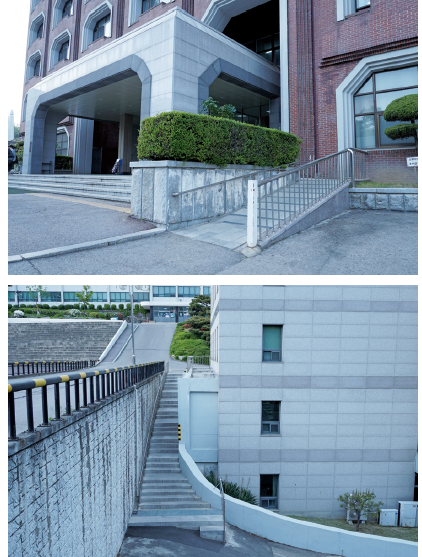
Q. Please tell us what you think is the best way to change hateful expressions and perceptions of the disabled.
A. There are many problems associated with language. In the past, we used the terms “disabled” and “normal,” but nowadays we use “non-disabled” instead of normal. This change is important because it suggests that we don’t see their disorder as being negative anymore.
Q. Considering that the overall condition of our school is lacking compared to other schools, what do you think is the biggest step for our school to take to be competitive with them?
A. Before talking about the structural issue, I want to talk about students’ cognition. A few years ago, I taught a presentation class that involved foreign students. During the group presentations, foreign students gave their presentation as group members, but their pronunciation was not correct because they were foreigners. However, some students put their hands up and said, “I can’t understand them because their pronunciation is not correct.” In situations like these, I think students have to change their minds first before changing structural things. Therefore, I hope that some movement will appear that promotes awareness improvement programs. For disabled people, we sometimes consider disabled people as having low intelligence, or not being thankful people when doing group work. Also, thinking of mentally disabled people, a lot of non-disabled people consider them to be scary, but it is very important that we improve people’s perceptions about mental disorders because not all mental disorders are serious ones such as schizophrenia. Therefore, I think that has to be the first project. The second issue related to disabled students in Kyonggi University is that some multilevel buildings don’t have an elevator, so they experience some inconveniences. Also, if blind people come to our school to take a class, they can’t follow the class unless the class supports their needs. It’s not the student’s fault that they have a disability. Thus, there are structural problems that must be solved in order to support students with disabilities. If they get support like typing assistance or help reading books, they have an opportunity to study in the same way as non-disabled students. Additionally, I had a class with students from Africa, and they thought they were discriminated against because their skin color was different. In fact, it is important to respect the culture and customs of our country when foreign students come, but students at our school must also respect their cultures. Therefore, I think we need education to teach students how to accept the cultures and customs that the foreign students have. I’ve heard about foreign students living in the dormitories, and they say it’s hard to understand announcements because fire and information notices are only in Korean. Also, there are a lot of people who have anxiety disorders. However, nobody can know that before they talk to them. Some of the students who often come and go in and out of class are either claustrophobic when they are in the room or have a panic disorder when in an enclosed space. If they talk to their professors before the class, their behavior is not felt to be weird, but if they don’t talk to their professors, the professors can feel that their behavior is a serious distraction. Therefore, I think professors must learn about these problems.
According to Professor Park, it is important to solve structural problems, but it is also important to change cognitive biases. There is still discrimination and hatred against the physically and mentally disabled and foreigners, although the perception of these marginal groups has improved a lot compared to before. There are some non-disabled people who claim that all discrimination has disappeared now, but those marginal groups that end up being discriminated against don’t think that is true. People who claim that discrimination against marginal groups has disappeared and say that they are thinking about equality may have made remarks that exclude others unconsciously. For example, last year, during the voting certification events of a college, some instructions said, “Please take a picture of the seal with your ‘left hand’ and send it to the student council’s account.” At first glance, nothing seems wrong. However, if a student who doesn’t have a left hand reads the sentence, what will she or he think about it? Won’t she or he think it’s an obvious example of discrimination? Problems stemming from a lack of awareness of or even abhorrence of the disabled appear even in such simple circumstances. Let’s think about the sexual minorities as some other groups that could benefit from improved awareness. All people have the right to decide their gender identity, just as people have the right to decide their sexual orientation. However, there are still a lot of people who refuse to accept this fact and refuse to admit the existence of sexual minorities for religious reasons or dismiss them as products of mental illnesses. You can discover this just by looking at Kyonggi University’s internet community. However, all people have to know that clearly nobody has the right to hate them. This article mentioned only sexual minorities, foreigners and the disabled as examples of marginal groups, but there will certainly be other marginal groups. All people clearly have an obligation to improve their awareness of all marginal groups.
Then, what measures are being taken to support marginal groups in other universities? First, at Ehwa Womans University, when they have performances such as the ones at festivals, they post lyrics and sentences to help hearing-impaired persons. Not only Ehwa Womans University doing this, but also a lot of universities have made places accessible for wheelchairs. Unfortunately, Kyonggi University hasn’t done this yet. Also, Seoul National University, Dongguk University, and Samgyuk University offer vegetarian meals in consideration of their vegetarian students, while Ewha Womans University's student council prepares vegetarian menus when carrying out exam encouragement projects. In addition, Sunchon National University and Kookmin University are offering a program for foreign students called the “Buddy Program.” The Buddy Program is a program for foreign students in which Korean students provide assistance with Korean language classes, university life, and Korean culture. It is impossible to change the facilities of the school or implement a support program right away for the marginal groups. Although measures such as addressing the access problem of people who are physically disabled will not be possible at the moment, the Pharos hopes to start a small movement to take care of, members of marginal groups like other universities.
Members of marginal group are clearly a part of our university. However, because they are small in number compared to other students, requirements and conveniences important to them are often overlooked. A university is a place where everyone lives together; it is a little society. Therefore, the university has to think about what benefits the largest number of students and what is important to marginal groups too when it does things. Also, students have to try to listen to the views of marginal groups, and make an environment in which everyone can live together. The Pharos hopes that all people will do their best to make a place where everyone can live together, harmoniously.
Management Editor•CHOI SOYEON•clara3003@naver.com
Planning Editor•LEE GAEUN•antonia0504@naver.com
 Freedom Given to Youth: An Opportunity for Choice or a Burden of Constraint?
“Are we truly free today?” Classical literature is far more than time-honored stories. It offers profound insights into human nature and society that transcend time, remaining a valuable resource for examining the challenges our world faces today. This article will draw on George Orwell’s 1984 and Charles Dickens’ Oliver Twist to explore the contemporary issues of youth housing and the emergence of a surveillance society ...
Freedom Given to Youth: An Opportunity for Choice or a Burden of Constraint?
“Are we truly free today?” Classical literature is far more than time-honored stories. It offers profound insights into human nature and society that transcend time, remaining a valuable resource for examining the challenges our world faces today. This article will draw on George Orwell’s 1984 and Charles Dickens’ Oliver Twist to explore the contemporary issues of youth housing and the emergence of a surveillance society ...

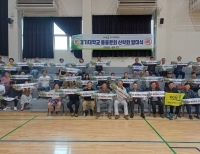 [단신] 산악회, 본교 동문의 버팀목이 될 수 있도록
[단신] 산악회, 본교 동문의 버팀목이 될 수 있도록
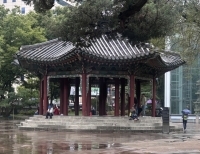 [사회메인] 노인 인구 1,000만 시대, 준비 없는 사회가 불안해
[사회메인] 노인 인구 1,000만 시대, 준비 없는 사회가 불안해
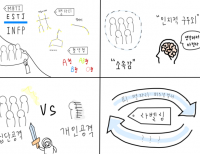 [네컷만화] 라벨링 문화
[네컷만화] 라벨링 문화
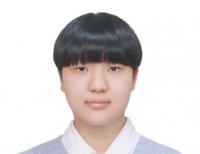 [진리터] 결국 우리 모두 돌아볼 것이니
[진리터] 결국 우리 모두 돌아볼 것이니

 목록
목록




